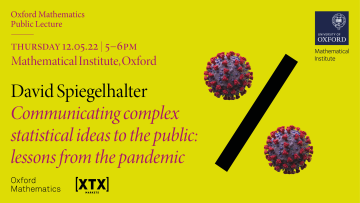Representing the string 2-group on Clifford von Neumann algebras.
Abstract
The string 2-group is a fundamental object in string geometry, which is a refinement of spin geometry required to describe the spinning string. While many models for the string 2-group exist, the construction of a representation for it is new. In this talk, I will recall the notion of strict 2-group, and then give two examples: the automorphism 2-group of a von Neumann algebra, and the string 2-group. I will then describe the representation of the string 2-group on the hyperfinite III_1 factor, which is a functor from the string 2-group to the automorphism 2-group of the hyperfinite III_1 factor.
How to restrict representations from a complex reductive group to a real form
Abstract
Let G(R) be the real points of a complex reductive algebraic group G. There are many difficult questions about admissible representations of real reductive groups which have (relatively) easy answers in the case of complex groups. Thus, it is natural to look for a relationship between representations of G and representations of G(R). In this talk, I will introduce a functor from admissible representations of G to admissible representations of G(R). This functor interacts nicely with many natural invariants, including infinitesimal character, associated variety, and restriction to a maximal compact subgroup, and it takes unipotent representations of G to unipotent representations of G(R).
Invariable generation and totally deranged elements of simple groups
Abstract
By a classical theorem of Jordan, every faithful transitive action of a nontrivial finite group admits a derangement (an element with no fixed points). More recently, the existence of derangements with additional properties has attracted much attention, especially for primitive actions of almost simple groups. Surprisingly, there exist almost simple groups with elements that are derangements in every faithful primitive action; we say that these elements are totally deranged. I'll talk about ongoing work to classify the totally deranged elements of almost simple groups, and I'll mention how this solves a question of Garzoni about invariable generating sets for simple groups.
On centralizers in Azumaya domains
Abstract
We prove a positive characteristic analogue of the classical result that the centralizer of a nonconstant differential operator in one variable is commutative. This leads to a new, short proof of that classical characteristic zero result, by reduction modulo p. This is joint work with Justin Desrochers available at https://arxiv.org/abs/2201.04606.
Some record labels are more well-known than many of their artists - Motown, 2 Tone, Def Jam. Stiff Records were one such example during the independent label boom of the 1970s with artists such as Elvis Costello, Devo and, in this case, Wreckless Eric. Eric is still going at 67 though no doubt a little less 'wreckless'.
We are delighted that after a two-year hiatus, in-person Oxford Mathematics Public Lectures are back and, as you can see, we are starting in style. Full details below.
Oxford Mathematics Public Lecture
Communicating Complex Statistical Ideas to the Public: Lessons from the Pandemic - David Spiegelhalter
Thursday 12 May 2022
5.00-6.00pm, Mathematical Institute, Oxford


